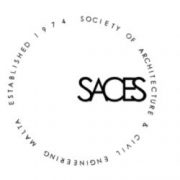Case Study 2 | Conflicting role of Perit and Developer
As you are aware, one of the functions of the Kamra tal-Periti is to investigate complaints of misconduct made against members of the profession. Many of these cases are often cleared following mediation between the parties, however there are several instances where the Council finds the actions of the perit in question to be unacceptable and unbecoming to the profession.
This case study considers a complaint which was received from Complainants A in March 2017, wherein they stated that they had purchased an apartment from Perit X around 20 years ago. When they came to sell the property in 2014, the estate agent brought to their attention the fact that the property was not compliant with the approved permit, including the number of garages beneath the block, some internal alterations, changes to the façade, and a room at the back of the property which had been indicated to them to be a bedroom (and was in fact used by them as such) but which had been approved as a kitchen in view of the depth of back yard which was less than the required minimum of 3m.
Complainants A alleged that they had been deceived when purchasing the property from Perit X, since the latter knew that the property was not in accordance with the approved permit. They stated that since the seller was a Perit, they had assumed that Perit X was acting in a professional manner, and they trusted in the advice given to them at the time of purchase. They also alleged that Perit X had shouted at them in their own residence, and also requested payment to submit the relevant applications to the Malta Environment and Planning Authority (MEPA), and, later, the Planning Authority (PA), to rectify the deviations from the approved permit. They also complained that although these matters had been brought to the attention of Perit X in 2014, the situation had not yet been addressed at the time of their complaint, and thus they had suffered damages as they could not sell their property.
Throughout the course of its investigation into this case, the Council of the Kamra tal-Periti requested various statements in writing from both Perit X and the Complainants. The Council also summoned both parties to testify, in order to be in a better position to determine the facts of the case.
It transpired that the land on which the block of apartments was built was owned by Company Y, of which Perit X was one of two shareholders (the other shareholder was also a Perit). Perit X had submitted the application for development permission to the Planning Area Permits Board (PAPB), in the capacity of both the owner and the responsible Perit. Perit X was then responsible for the design and erection of the block, and had acted on behalf of Company Y when the apartment was sold to the Complainants.
Upon being contacted in 2014 by the Complainants, Perit X proceeded to submit a number of applications to the MEPA / PA in order to rectify the situation with the Complainants’ apartment and the rest of the block. These included a Full Development Application to sanction the garages, and the internal and external alterations, a Minor Amendment application to this permit, two Category B (CTB) Concession applications and two applications for Regularisation. All these applications were eventually approved.
After taking into account all of the submissions and the testimony of the parties the Council of the Kamra tal-Periti concluded as follows:
- CONFLICT OF INTEREST BETWEEN ROLE OF OWNER / DEVELOPER AND PERIT
There is no doubt that conflict of interest existed between the role of Perit X as co-owner of Company Y (the developer), and the role of same as Perit responsible for the design and erection of the block. Perit X admitted to have been fully aware that the permit conditions were not adhered to at the time that the Complainants purchased the property, and yet he had never informed the Complainants of these deviations, thereby abusing their trust. In particular, this situation was further aggravated by the fact that, when purchasing the property, the Complainants felt reassured that they were acquiring a property which was built in line with the original planning permit, in view of the fact that the seller was a Perit by profession.
In its decision, the Council wrote to Perit X stating that “By putting yourself in this position, the Council is of the opinion that you have created a situation which goes against the intent of the Code of Professional Conduct which states that “A member must not hold, assume or consciously accept a position in which his interest is in conflict with his professional duty.” It is clear that in this situation you placed your interests as owner / developer of the property before your duty of care as a professional towards society. In view of this, the Council is hereby issuing a formal severe reprimand, which reprimand shall be registered in the Kamra’s records. Furthermore, you are advised that the Council will not tolerate any other similar reports of misconduct against you in the future.”
- DELAY IN ADDRESSING THE SITUATION
While it is true that there was a delay in addressing the situation, which was originally brought to the attention of Perit X in 2014, the planning processes available at the time could not address the situation present on site, and the Council was satisfied that the submissions to the MEPA and PA by Perit X were carried out with due diligence. The Council agreed that the delay in achieving full regularisation of the property as built was beyond the direct control of Perit X, although, as outlined above, the deviations from permit conditions should have been disclosed to the Complainants at the time of purchase of the property.
- RAISING OF VOICE
The Council noted that Perit X had admitted under oath to shouting at the Complainants in their residence. Although it is a matter which is not becoming of a professional, the Council was satisfied that this appears to have been a momentary outburst. Nevertheless, the Council requested Perit X to apologise formally to the Complainants.
- REQUESTS FOR PAYMENT
The Complainants claimed that Perit X requested payment in order to rectify the planning situation of the property. The Council is satisfied that although this was the case, Perit X did not insist on this matter, and eventually carried the costs associated with the relevant planning processes. Ultimately, this was a commercial matter between the two parties. The Council agreed that Perit X had not been engaged by the Complainants with respect to the applications submitted to the MEPA / PA to rectify the situation, but rather they approached Perit X as co-owner of Company Y, and therefore if anything any claim of fees due should have been addressed through Company Y.
The decision was copied to the Complainants. The Council also agreed to issue a Memo to its members advising them of the serious conflicts that may arise when they assume dual roles such as in this case.
The Council has issued this Case Study to remind members of the profession that, at all times, it is important to act in a manner which upholds ethical standards and professional decency. Periti are reminded that, in accordance with Chapter 390 of the Laws of Malta, conduct which is deemed to be discreditable to the profession may be punishable through the suspension, revocation or cancellation of a warrant.









